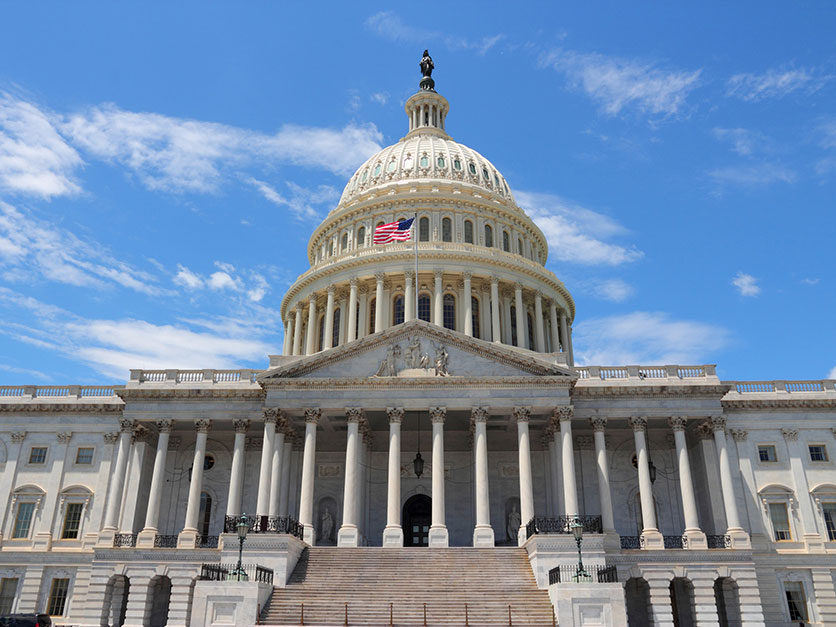The House Appropriations Committee advanced a $27.2 billion spending bill for the Agriculture Department and Food and Drug Administration that would provide significant new funding for conservation technical assistance, rural broadband and food safety.
The committee approved the bill on a party-line, 31-26 vote after Republicans argued the 8.3% increase in spending in the overall bill was excessive. The funding is likely to be cut significantly during negotiations with the Senate, which has yet to begin work on its version.
Before the final vote on the bill, the committee adopted by voice vote an amendment offered by Rep. Dan Newhouse, R-Wash., that would prohibit companies from China, Russia, North Korea or Iran from buying U.S. farmland.
“The US cannot become dependent on our adversaries for our domestic food supply," he said.
A similar Newhouse amendment was dropped during negotiations with the Senate last year in favor of requiring USDA to study the foreign landownership issue.
The panel separately adopted an amendment to the bill’s accompanying committee report that calls on USDA and FDA to work together on streamlining the way that gene-edited food animals are regulated.
FDA has long resisted relinquishing its regulatory authority over gene-edited animals, but Agriculture Secretary Tom Vilsack has continued an effort started in the Trump administration to give USDA an oversight role. The department has not set a timetable for proposing regulations. FDA regulates biotech animals under its animal drug authority.
An amendment offered by Rep. Ashley Hinson, R-Iowa, says USDA “shall consult with the commissioner of the Food and Drug Administration to ensure any resulting regulations are coordinated.” Committee reports don’t have the same force of law as the bill text, but they do provide guidance on how funds are to be spent.
Rep. Cheri Bustos, D-Ill., said Hinson’s amendment, which was approved by voice vote, provided “straightforward language to encourage the USDA to work in close collaboration to help streamline regulation.”
Hinson said, “This is about making sure that USDA and FDA are swimming in the same direction.”
The FY23 bill, which also funds the Commodity Futures Trading Commission, includes $560 million in new rural broadband funding for USDA, which would represent a $10 million increase over what Congress provided for FY22. That total includes $450 million for USDA’s Reconnect loan and grant program and is in addition to the $2 billion earmarked for ReConnect under the bipartisan infrastructure law enacted in 2021.
Looking for the best, most comprehensive and balanced news source in agriculture? Our Agri-Pulse editors don't miss a beat! Sign up for a free month-long subscription.
The bill would provide USDA's Natural Resources Conservation Service with $883.7 million in conservation technical assistance in FY23, up from the $759.8 million the agency has this year, according to an analysis by the National Sustainable Agriculture Coalition.
USDA's Animal and Plant Health Inspection Service, which is responsible of combatting agricultural pests while also regulating plant biotechnology, would get a $52 million increase in funding in FY23, bringing its budget to $1.16 billion.
USDA research programs would get $3.6 billion, up from $3.5 billion in FY22.
FDA would get $3.6 billion, an increase of $341 million over FY22, including $77 million more for food safety.
The bill’s committee report urges USDA and FDA to address several labeling issues and directs the department to continue providing $5-an-acre payments to farmers who plant cover crops. USDA started the program in 2021, using pandemic relief funding.
The report directs FDA to start enforcing food labeling rules that the Trump administration eased at the beginning of the COVID-19 pandemic and to do a study on consumer attitudes and perceptions around plant-based alternatives.
The top Republican on the Agriculture Appropriations Subcommittee, Rep. Andy Harris, R-Md., argued that some of the funding provisions in the measure were reckless, including one that would effectively remove a limit on the Supplemental Nutrition Assistance Program. "Providing USDA with a blank check is just irrational and irresponsible," Harris said.
He also objected to a provision that would continue a special allowance for fruits and vegetables in the Women, Infants and Children program. He said the provision implemented during the pandemic was intended to be temporary.
For more news, go to www.Agri-Pulse.com


